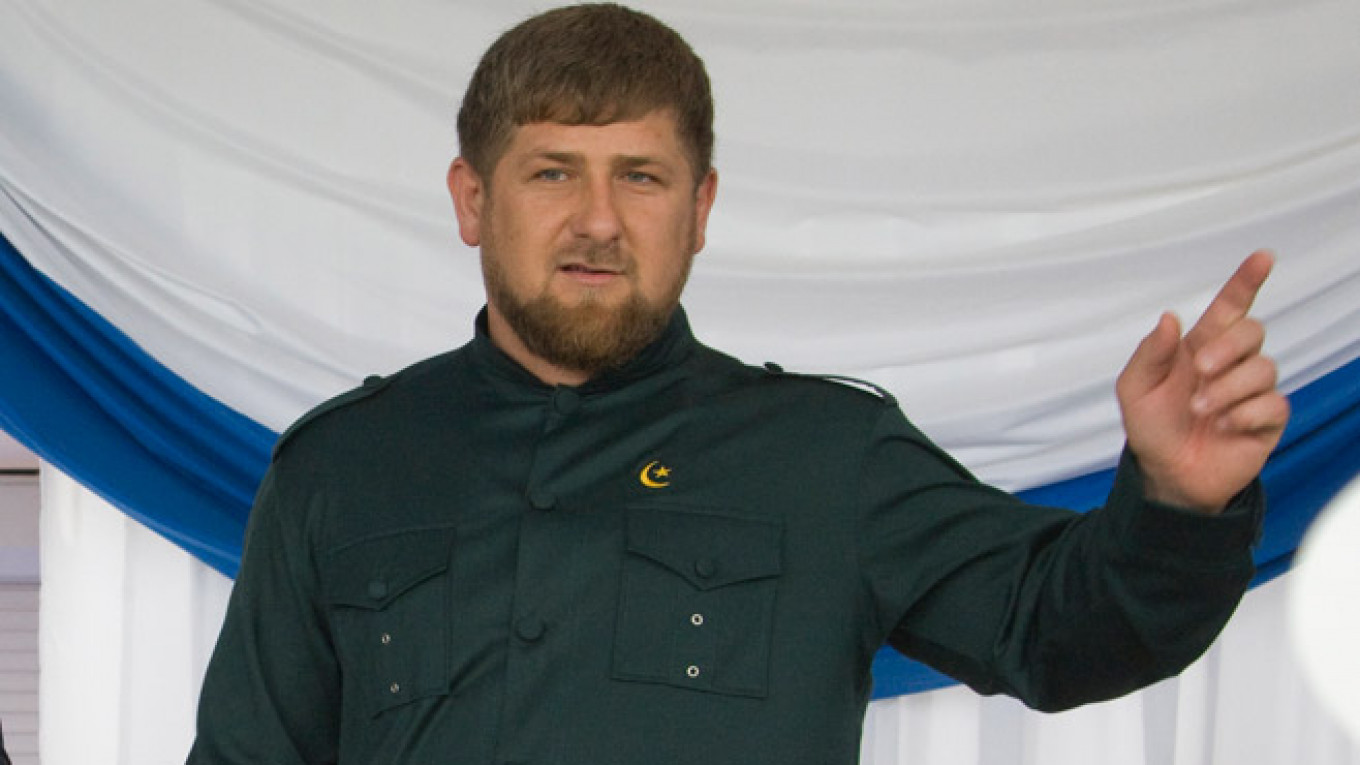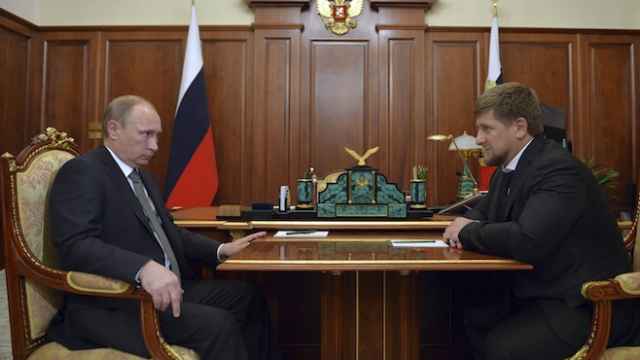As human rights activists on Thursday reported that at least six homes linked to Islamic insurgents had been burned to the ground by masked men near Grozny following calls by Chechen leader Ramzan Kadyrov to punish militants' kin, federal lawmakers moved in Moscow to hold the families of insurgents criminally liable for the actions of their relatives.
Human rights group Memorial published a report Thursday providing detailed accounts appearing to verify earlier media reports that masked men had descended upon Chechen villages in the aftermath of last week's terrorist attack in Grozny, leaving a trail of charred homes in their wake.
The Dec. 4 attack sent shockwaves through the republic and saw 14 policemen killed while battling the militants. At least 10 of the militants were killed, and dozens on both sides were injured amid the chaos.
The village homes were destroyed after relatives of Islamic insurgents involved in the Dec. 4 attack on the Chechen capital identified the bodies of their loved ones, and on the same day Kadyrov declared via Instagram that family members of militants would be deported and their homes razed to the ground in retaliation for their relatives' terrorist activities.
The first home destroyed in an apparent act of retaliation for the attack belonged to Yunus Gekhayev, whose son Yusup had been identified as one of the Dec. 4 attackers a day earlier. Witnesses told activists from Memorial that armed, masked men pulled up in a vehicle on Dec. 6 before rounding up all the home's inhabitants and making them wait on the street until the home was engulfed in flames.
Some of the other homes destroyed between Dec. 6 and 7 had no direct connection to the Dec. 4 attackers. One had been vacant for more than a year, Memorial reported, though the deceased owner of the home had a son who was thought to be involved with the republic's underground insurgency.
Although the identities of the masked arsonists remain unknown, human rights activists have expressed concerns that Kadyrov's statement about holding the families of militants responsible for their actions may have encouraged the attacks.
"It's time for Russian leaders to take a clear position on this savage form of collective punishment, and not make it look like they are encouraging it," Tatyana Lokshina, deputy director of the Moscow branch of Human Rights Watch, wrote in the report.
Amnesty International also condemned the incident in a statement released Thursday, referring to it as an "outrageous violation of international law."
Kadyrov seemed unfazed by the effect his words had, however, championing himself through his Instagram account Thursday as Chechnya's chief human rights defender.
"Earlier I declared that relatives should answer for the criminal actions of their sons, if they did not stop them themselves or turn to police. Some Kalypin stood up for the militants and their relatives," Kadyrov said, referring to Igor Kalypin, chairman of the Committee Against Torture and a member of the Kremlin's human rights council.
On Wednesday, Kalypin had appealed to Russia's prosecutor general to look into the legality of Kadyrov's statement about punishing the relatives of militants.
At least one Russian lawmaker has expressed support for Kadyrov's idea, however.
Roman Khudyakov of the Liberal Democratic Party has submitted a bill to the State Duma that would hold relatives of militants criminally liable for failure to inform the authorities. Relatives would face charges if they were aware of the activities of their loved ones, "if they foresaw or should have foreseen danger to the public … and permitted an attack to happen or treated [the situation] carelessly," the text of the bill reads.
Contact the author at a.quinn@imedia.ru
A Message from The Moscow Times:
Dear readers,
We are facing unprecedented challenges. Russia's Prosecutor General's Office has designated The Moscow Times as an "undesirable" organization, criminalizing our work and putting our staff at risk of prosecution. This follows our earlier unjust labeling as a "foreign agent."
These actions are direct attempts to silence independent journalism in Russia. The authorities claim our work "discredits the decisions of the Russian leadership." We see things differently: we strive to provide accurate, unbiased reporting on Russia.
We, the journalists of The Moscow Times, refuse to be silenced. But to continue our work, we need your help.
Your support, no matter how small, makes a world of difference. If you can, please support us monthly starting from just $2. It's quick to set up, and every contribution makes a significant impact.
By supporting The Moscow Times, you're defending open, independent journalism in the face of repression. Thank you for standing with us.
Remind me later.






